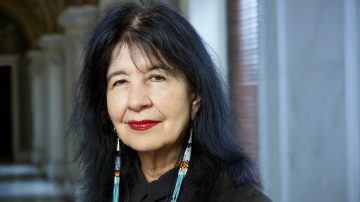by Katie Poore

A few months ago, before the news had spiraled into an endless spiral of public health precautions and death tolls, I was scrolling through Instagram, thinking, as one does while scrolling through Instagram, of nothing in particular. It had been a long day, and I was eager for those ten minutes of blank-mindedness, a strange and temporary forgetting as one melts into a digital universe. News of COVID-19 had just begun to spike where I had been living in Chambéry, France, close to the northern Italian border, and although it didn’t feel particularly urgent, I felt, as I almost always do, unsettled by the endless news cycle and the catastrophic events that have become so commonplace that the word catastrophic has begun to feel itself quotidian.
The news was bad, but Instagram was mostly anesthetizing, and anesthesia is what I sought. Thoughtlessness.
But it didn’t last long. Rather quickly I stumbled across a few snippets of a poem:
Praise crazy. Praise sad.
Praise the path on which we’re led.
Praise the roads on earth and water.
Praise the eater and the eaten.
Praise beginnings; praise the end.
Praise the song and praise the singer.
This was my first introduction to Joy Harjo, who has recently been reappointed a second term as the U.S. Poet Laureate. It was posted on an account called The On Being Project, created and led by Krista Tippett, who might be most familiar as host of the On Being podcast. She excerpted Harjo’s poem, “Praise the Rain,” as a promotion for what was then the most recent episode of her latest podcast project hosted by Irish poet Pádraig Ó Tuama, Poetry Unbound. A meditation on the spiritual nature of gratitude and of scrupulous attention (in another line, she says we ought to praise the “curl of plant”), Harjo’s poem was a perfect antidote to both my own mindlessness and the chaos that inspired it.
Harjo is the first Native American to hold the poet laureate position, hailing from the Muscogee (Creek) Nation and writing frequently to give voice to Native perspectives. Tbe New York Times phrases it this way: “Harjo…has dedicated her career to making native people and their stories visible, exploring tribal histories, spirituality and feminist issues in nine collections of poetry.”
I’m no expert in Harjo’s poetry—I, after all, have only just begun exploring her extensive collections—but it is clear that she is particularly attentive to the small shining kindnesses of the world, and the manner in which these kindnesses coagulate into larger narratives of purpose, presence, and light amidst tremendous and often bewildering forms of suffering and alienation.
And that’s what Harjo’s poetry is, in broad strokes: narratives of a broken and terrifying world, perspectives of alienation and loss, and the miraculous human capability to find oneself—and to find and be kindness—within the mayhem. Harjo’s is a perspective that is all the more poignant for its advocacy and expression of one of the United States’ most disenfranchised people groups, and for the grace, spirituality, and reverence it offers as a response to grief and rage (for an example of this, it might help to read 2015 poem “For Calling the Spirit Back from Wandering the Earth in Its Human Feet”).
This is why Harjo’s reappointment as poet laureate feels like an aptly timed piece of good news: because Harjo staunchly demands kindness when one might rather panic, patience when one feels far from home and the familiar. And although most of us are in homes, aching to leave them, our lives are less familiar than they may ever have felt. And Harjo, speaking as the voice of a population who has been far from home for a tremendously long time, knows a thing or two about feeling the world shift under your feet and watching it coalesce into something unimaginable. She knows a thing or two about loss, and the kind of broad, grasping anger that is all the more bewildering for its enormity.
But she has this to say about lostness and grief and uncertainty, and finding our way back to ourselves and our homes, in “For Calling the Spirit Back:”
Don’t worry.
The heart knows the way though there may be high-rises,
interstates, checkpoints, armed soldiers, massacres, wars, and
those who will despise you because they despise themselves
…
Cut the ties you have to failure and shame.
Let go the pain you are holding in your mind, your shoulders,
your heart, all the way to your feet. Let go the pain of your
ancestors to make way for those who are heading in our
direction.
…
Welcome your spirit back from its wandering. It may return in
pieces, in tatters. Gather them together. They will be happy
to be found after being lost for so long.
…
Then, you must do this: help the next person find their way
through the dark.
This is good advice as we navigate an ever-shifting global landscape and our own proverbial darknesses, and it is the kind of spiritual and humanist expression of hope and cooperation that feels almost uncannily apropos in a time of ideological warfare and immense insecurity.
Let us use this sort of attitude as a rulebook, if we can: to release our myriad pains, to welcome our own wayward souls back home, and to serve as a guide for those around us who are lost in their own darkness.
